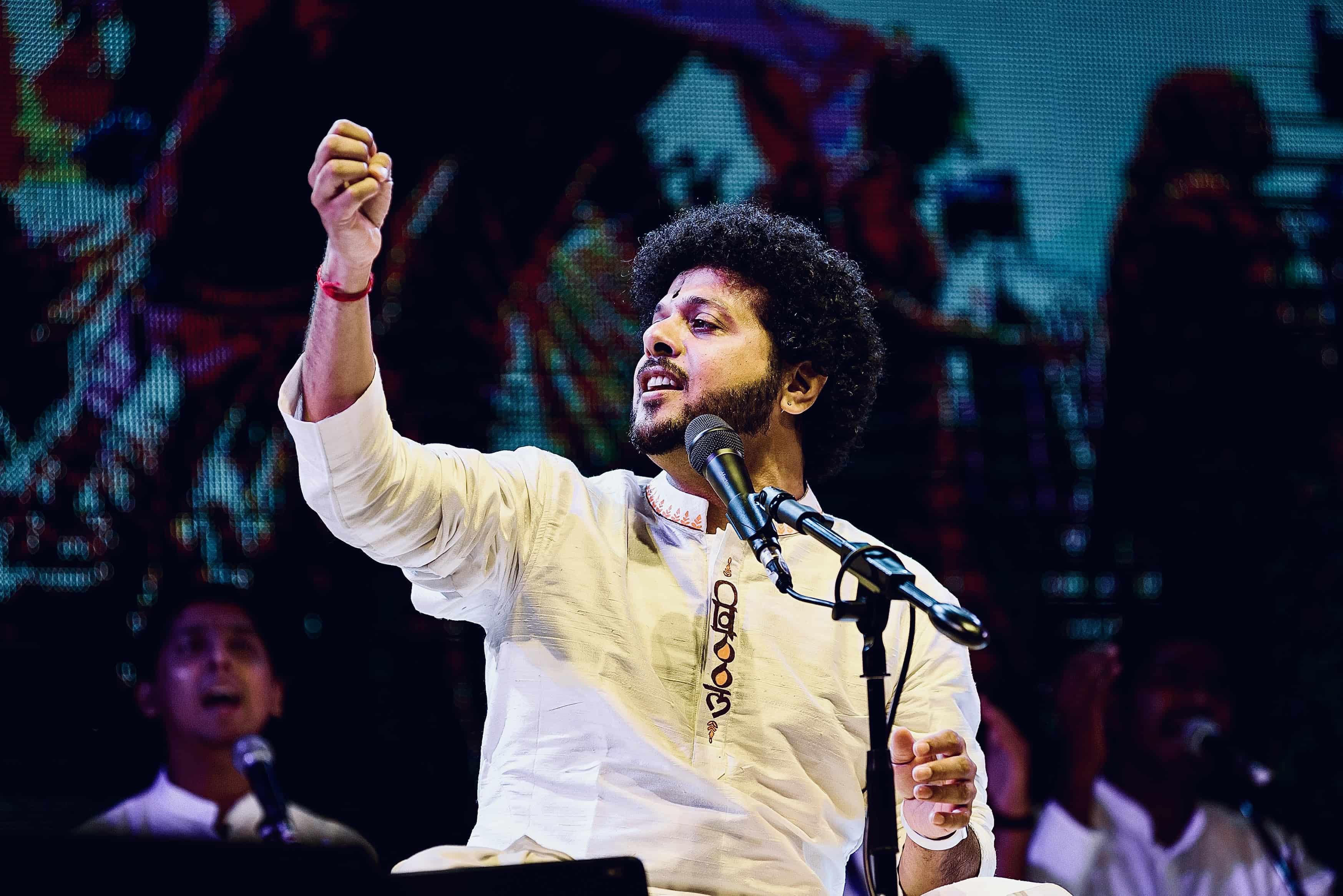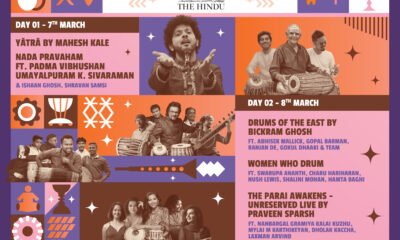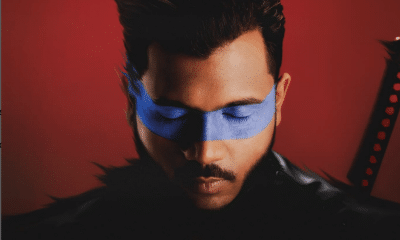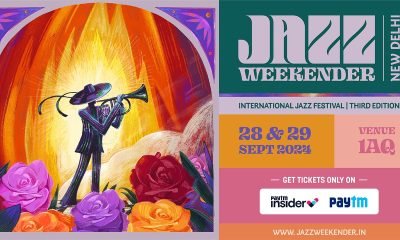Culture
No disrespect, with meaningful collaborations in this transactional world of disputes, Indian Classical Music can only heal: Mahesh Kale
I have a kids’ batch for which I composed a song in Rag Yaman but written in English because they do not speak other languages. It says, ‘One fine summer we all learned to sing, didn’t know it would be the most favourite thing, singing Yaman makes me happy.’ So the lyrics are something they identify with because it was in summer, and it is composed in Yaman using the classical guidelines.
Mahesh Kale is a renowned Indian vocalist, celebrated for his mastery of Hindustani classical music, semi-classical, devotional, and Natya Sangeet. Trained under the Gurukul system by the legendary Pandit Jitendra Abhisheki, Mahesh Kale has earned widespread acclaim for his versatility and depth in various forms of Indian music. Honored with the prestigious 63rd National Film Award for Best Playback Singer for his soul-stirring rendition of “Aruni Kirani” in the Marathi film Katyar Kaljat Ghusli. Over the years, Kale has collaborated with legendary artists such as Zakir Hussain, Stanley Jordan, Aruna Sairam, and Trilok Gurtu, making him a sought-after performer on the global stage.
After completing his ‘Abhangwari’ concert tour in India and the Stanford Jazz Festival in San Francisco alongside George Brooks and V. Selvaganesh, Kale is now embarking on an Australia tour performing in cities including Perth, Sydney, Adelaide, Brisbane, and Melbourne. Mahesh Kale also founded the Mahesh Kale School of Music in San Francisco, where he teaches students across 15 countries, inspiring a new generation of musicians.
We caught up with Mahesh Kale and in this conversation with The Plunge Daily, he opened up about how he see classical music evolving and the changing times.
Tell us about the the ‘Abhangwari’ Tour and Australian Tour – Returning after 7 years, what new elements or musical experiences can the Australian audience expect?
When you grow in years, in experience, as a person, you have a refined thought process, and that refinement reflects in your art. I think Australia should expect that in this tour. Not to mention that I have a few new songs and compositions that I made in those 7 years.
What were some of the most memorable or surprising moments from the Abhangwari tour?
The most memorable moment is when music becomes a vehicle and transforms itself into an experience that is shared across ages, upbringings, and geography. When all of us feel bound together as one, experiencing the joy that is beyond something of the transaction, that is the most memorable part. Not to mention, I wrote, composed, and sang a song, especially for Abhangwari, that I’m going to release soon.
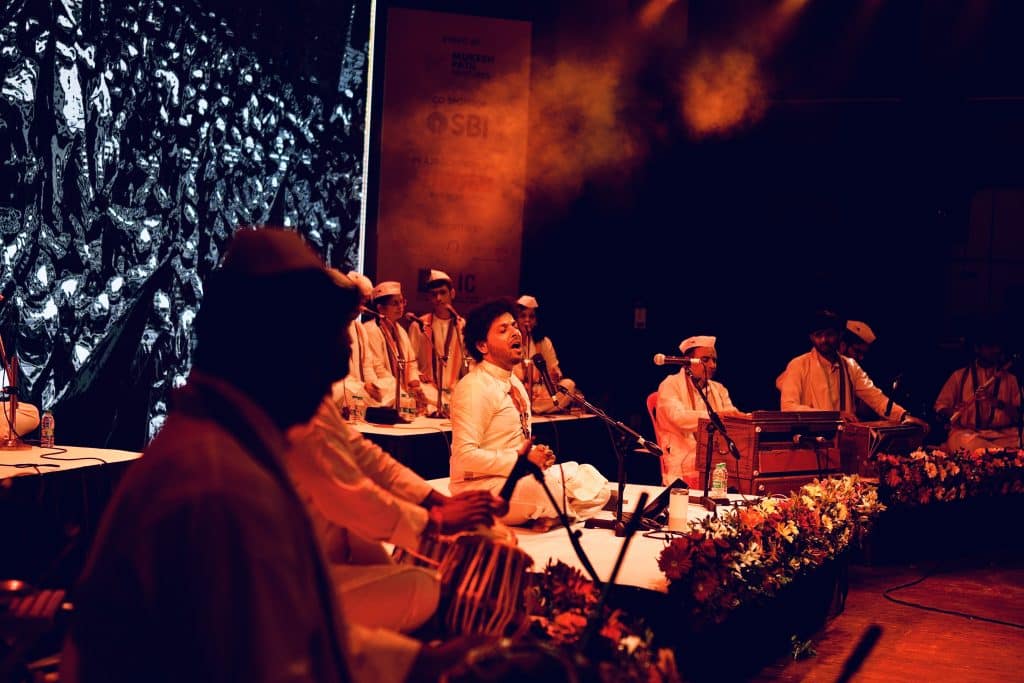
Mahesh Kale performing at his concert Abhangwari
What motivated you to establish the Mahesh Kale School of Music in San Francisco?
The reason I established MKSM is because, as they say in the US, sharing is caring. I care about Indian classical music and I want to share it with everyone. The reason I took it online is because I did not want geography to be a barrier to quality education.
With students from 15 countries, how do you maintain the authenticity and integrity of Indian Classical Music while adapting to diverse cultural backgrounds?
I have been teaching for a long time and as you know San Francisco is a very diverse area, in itself it’s a little world because you can see, meet and interact with people from all over the world and that’s helped me understand how to retain the authenticity and adapting to the cultural context, that’s exactly what I’ve done with MKSM. All the curriculum is built on the core of our Indian classical music but the delivery mechanism, the way the classes are conducted are a little more palpable and approachable so that the students don’t feel intimidated by the process but enjoy it.
For example, I have a kids’ batch that I composed a song for in Rag Yaman but written in English, because they do not speak other languages. It says ‘one fine summer we all learned to sing, didn’t know it will be the most favorite thing, singing Yaman makes me happy and so far and so forth, so the lyrics are something they identify with because it was in summer and it is composed in Yaman using the classical guidelines.
Any inspiring moments with students or stories for our readers from the Mahesh Kale School of Music that highlight the impact of your teaching?
I have several beautiful memories. One that comes to my mind immediately is of a student, Arya.
Arya learned with me since he was 7 years for a good 8 years and now he has gone away for his studies. When he came back, and everytime the kids come back, they see me, Arya asked me if I remembered that I used to take them to old age homes and made them sing for the old people, patients and other people in the hospital, based on that he took his team to sing for the patients at a hospital.
It felt very nice and it continues to feel nice when you view music as not just a source of joy but also a source of healing and when you are trying to transmit the same thought to the kids of that tender age and then picking it up and then taking the work ahead, that’s exactly why I started MKSM, to have a sustained joy of Indian classical music.
Talking bout your Artistic Journey and Collaborations – trained under the Gurukul system, what unique lessons or values from that experience do you carry with you today?
The discipline, the commitment and the focus. You know, life happens to everyone but you have to make sure the purpose and the intention for the long is intact. I have a very haphazard schedule when I’m traveling a few countries every single year, through different time zones, perform and conduct, all while I’m teaching and it sometimes gives you a justification to not do what you should be doing but I always make sure to stay the course and remember the values my guru has imbibed in me, to be honest and I think that’s the lesson I will carry forward, hoping my students carry it forward too.
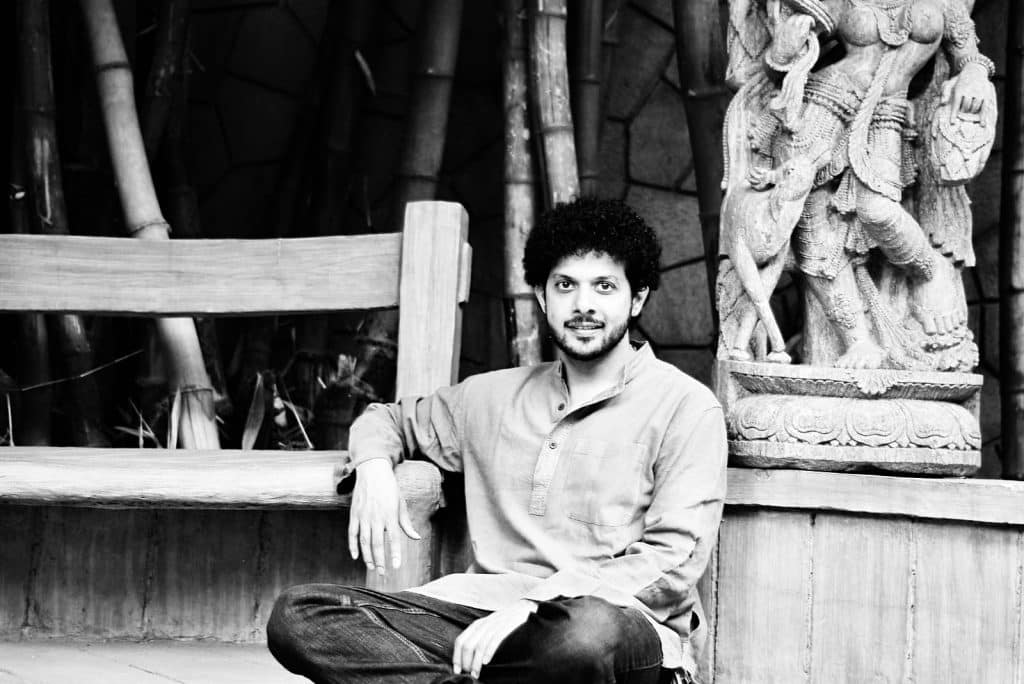
National Film Award Winning Indian Classical Musician: Mahesh Kale
Winning the National Film Award for Best Playback Singer was a significant achievement. How has that recognition influenced your career trajectory?
Winning the national award gave me a reconciliation and almost made me a household name, especially amongst the Marathi people and gave me an exciting opportunity to become a judge on a TV show, which then brought me beyond the geography of Maharashtra. It has indeed been a turning point in my career, thus far.
What are your thoughts on the fusion of Indian Classical Music with other genres?
Fusion, in music is a beautiful way of making music accessible to the people who might not be interested in it. For example, I did a fusion with Jazz, so what I was able to do is secure an opportunity to sing and share my classical music compositions with a set of audience that might not self select Indian Classical Music but now having heard me in the Jazz concert, I do see them in my traditional concerts.
What do you see the future of classical music in India and the world?
Unfortunately, we see that the world has become more transactional and there are a lot of disputes. I think the healing and the wellness factor that Indian Classical Music has will find a stronger footing in the years to come. It already has established itself as a means to not only harness the joy but also the peace, the wellness that has a very strong undercurrent in our classical music.
With Hip-hop and other Eastern influences making their way into the mainstream, how do you see Indian classical music evolving?
There’s nothing that is happening in the sense of change right now, that has not happened in the past. Of course, the changes are different but we have always seen that inflow of different genres and evolvement and Indian Classical Music has found its own way to be relevant to the social changes, to these new forms and I want to make sure that I actively observe and learn from these changes so that it not only fits but thrives with current times.
Would you be open to a fusion of Indian classical music with these global influences or do you see that as disrespectful?
I absolutely welcome all kinds of collaborations. If there is a meaningful way of extending the outreach of Indian classical music far and wide, I’m happy to take whatever means it takes. I remember my mother used to make Palak ki sabzi which I initially didn’t like and then she made some sort of a bread which had paalak in it, and it had the necessary nutrition of paalak. In the same way, I feel the nutrition of Indian classical music should be delivered through all variables available and possible.
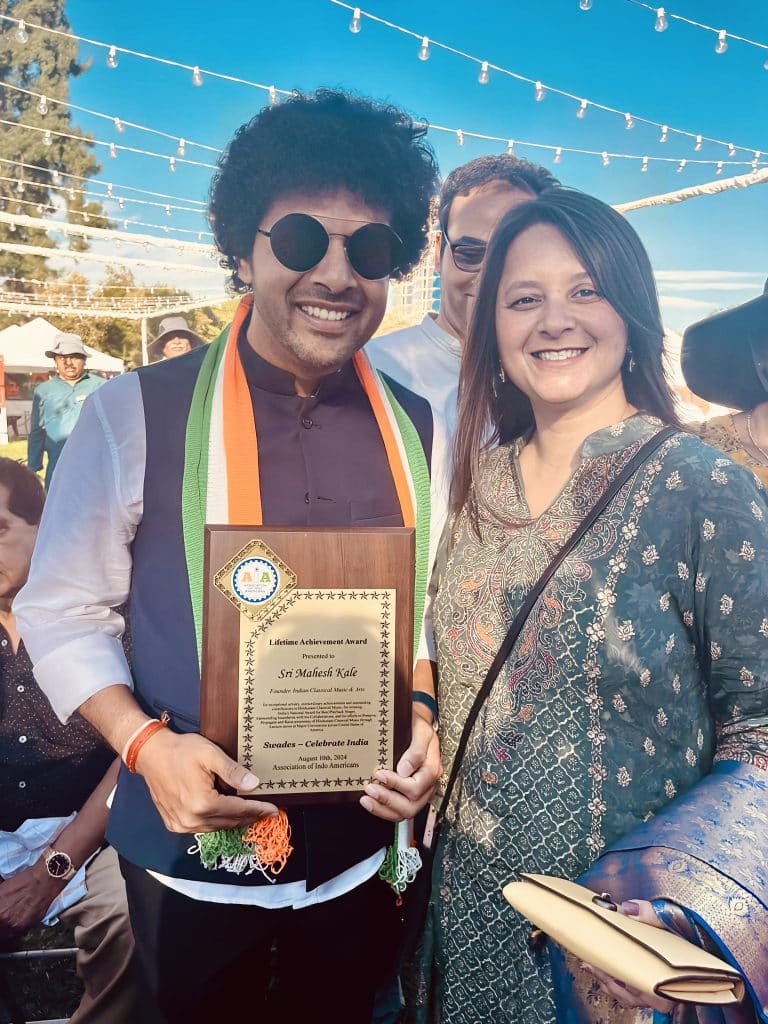
Mahesh Kale with wife Purva Gujar Kale – Awarded Lifetime Achievement Award in San Jose
In classical music, we have Gharanas (schools or styles). With the trend of new music and artists, how do you see the future of Gharanas?
The idea of Gharana was formed when the kings of different places offered patronage, like the king of Jaipur offered patronage so royal musicians became the musicians of Jaipur, Agra, Sahaswan, Rampur, Gwalior to name a few and now these geographies have become lucid with the advent of trade, jobs and other factors so it’s easy to transfer. So, I sense the lines of the Gharana have become murky from when they were formed but it’s a beautiful vehicle to represent something that is unique, so I welcome the ideas of Gharana and therefore I like the idea of them existing too.
Recently, you received the Lifetime Achievement Award at the Independence Day Parade in San Jose. Do your share thoughts on the same.
Quite honestly, receiving a lifetime achievement award at this juncture in my life is a little awkward given that I received a youth icon award back in India. But nevertheless, being recognised by the Indian contingent for what I love to do, recognising my purpose and mission in quite encouraging but I must say there’s a long way ahead and I will keep walking towards it.


